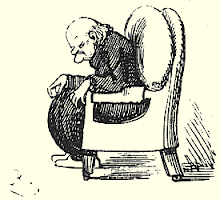On Thursday night, I bought a book-- an actual 8" x 5 1/4" paperback book at Borders. That's right. Pin a medal on my shirtfront at a ceremony featuring a marching band and ditheringly platitudinous speeches made by gray-sideburned men in frockcoats and tophats. I am doing my part to keep a sinking vessel afloat. I am the savior of the ship.
$14.99, plus $.90 to account for Pennsylvania's 6% sales tax, doesn't get you much at Borders these days. Yes, it will get you a fru-fru drink from the café and a rather untowardly-sized chunk of coffee cake, and it'll also get you some horseshit stationery pack-- not that anybody actually writes letters or cards anymore. It'll get you probably a small amount of actual books-- "The Abridged History of the American Firearm" from the discount section, or perhaps a paperback school edition of "Hard Times."
It got me "The Center Cannot Hold," by Elyn R. Saks. I'm 280 pages out of 336 in, and I'm frankly surprised that I've been able to take a break long enough to write a blog post. But, hey-- it's Sunday night and I've got work due on Monday morning, at 7:18am. Great expectations.
It's a remarkable book by a remarkable lady. A graduate of a Masters program at Oxford University and Yale Law School, Elyn Saks also suffered from grave mental illness, causing her to experience hallucinations and delusions, resulting in her being hospitalized both in England and America. She had countless encounters with full leather restraints, as well as countless encounters with psychiatrists, analysts, therapists and doctors who did what they thought was best to help her. Some were on the right track, some not so much so. Her book is heartbreaking, inspiring, frightening, unsettling and glorious, for she is able to elucidate and describe what a psychotic break looks like, feels like, sounds like, smells like, and talks like.
"Head explosions and people trying to kill. Is it OK if I totally trash your office?" Saks queried one of the physicians she'd been working with during a particularly bad break. Eating, bathing-- what was that? There were anonymous people trying to kill her everywhere she looked and her own "head explosions" to deal with every second of the day.
As a person who works with people who suffer from mental illness, who has had very little educational or clinical experience prior to this job, it is absolutely essential (for my well-being and for the patients) that I soak up whatever knowledge and experiences I can. Christ knows I am not going back to school for psychology at age 30, and I've already been to numerous trainings on trauma and Stage of Change theory and roundtable discussions with psychologists and psychiatrists, but I have learned more plowing through 2/3rds of Elyn R. Saks book than I have from all of those trainings and packets and handouts and motherfucking PowerPoint presentations.
Of course, I learn from my patients, too. I learn from what they tell me, and what they don't tell me, what they hear and what they think they're hearing. In the psychoeducational groups that I run, I learn as much as I teach-- maybe more. I learn from the interactions I witness between staff and patients-- the good interactions and the poor interactions, and I'm getting so I can differentiate between the two.
Really, it's not too hard.
I do a lot at work. I teach the groups. I interview patients. I counsel, I talk-- but the most important thing I do is listen. The opportunities patients get to talk-- to really talk-- to staff are few and far between, and some days they give me twenty patients to see, so the temptation is to wham-bam, thank you, ma'am. But I can't do that. I'm not that downtrodden yet. So I make more time. I come into work half-an-hour early, even though I do not get paid for it. I have an hour lunch, but, most days, I wolf down my food in fifteen minutes and head back into the building. I'm no martyr and I'm no saint, but what's the point in my being there if I'm not giving all I can?
While I do a lot at work, the one thing I really don't witness or participate in are the therapy sessions-- because they're between the patient and the psychologist, of course. I would love, though, to be a fly on the wall during some of those sessions-- to see how the psychologists handle some of the most challenging patients in the state, to see how the patients react-- to maybe gain something vicariously for myself-- some little snippet of wisdom or a seed to plant in my own little garden.
My garden.
I feel like I've neglected it a little bit. The last time I sat across from a therapist was ten years ago-- in college. It made sense for me to go to therapy as an undergraduate, after all, college is the most selfish time in a person's life: it almost seemed a sin to go through college not spending at least fifty minutes a week talking about yourself. I went for just over two years-- spending a year-and-a-half with the same therapist, whom I adored. The sentiments were reciprocated, and it was good. Of course, at the same time, it wasn't good.
"I was seducing him," I told my wife at the kitchen table yesterday morning. She raised an eyebrow. "You know what I mean-- not like that. Like, getting him to believe I'm special, like I was entertaining and good and funny and nice." And he bought it. "I've got to tell you," he said to me one time, "I almost feel guilty about how much I enjoy the time you and I share together each week."
What a thing for a patient to hear. I ate it up like Borders Café coffee cake. The fact that I remember that and not much of the actual counseling shows you how much his sentiments meant to me.
I've been thinking lately, perhaps spurred by Elyn Saks' innumerable therapeutic contacts, perhaps by the recent turmoil and depression that has hovered like a raincloud over my family, about a return to the couch. Or the chair, depending on the modality of choice, and I don't know how I feel about it. I now have insurance that covers in-network mental health services-- up to a point, of course. I'm not rehearsing for a show, so I'm kind of out of "time excuses." But I don't want to spend time and money... performing for someone, trying to reel them in and seduce them, and I don't know if I'm powerful enough to make myself not do that.
And I don't know if it matters, if I'm also getting the help I want or may need.
I guess you could say I'm in Contemplation, to use the language of my current trade. And I've gone in and out of that stage every so often during the last decade. I don't know what I'll end up deciding on, or if I'll move out of that stage into something new. For now, because I have reality-based thought processes, a supportive, loving wife, a relatively non-clinical family, and you, my center is holding fast. And, one way or another, I am determined to be the savior of my own ship.
Lauren Soloy’s The Newest Gnome: A Quiet Adventure
10 months ago














I can't tell you how much I relate to this. I've been in Contemplation for some time, and even thought about picking up the phone today to do something about it, but I keep holding back. And I see people close to me who are worse off and wonder, "What about them?"
ReplyDeleteBest wishes.
Lynsi--
ReplyDeleteAs far as things go, Contemplation's not such a bad place to be. As far as the people around you who are "worse off" than you, well, you can wonder about them all you want-- but, really, it's on them.
And this is on us.
I wish you all the best, too.